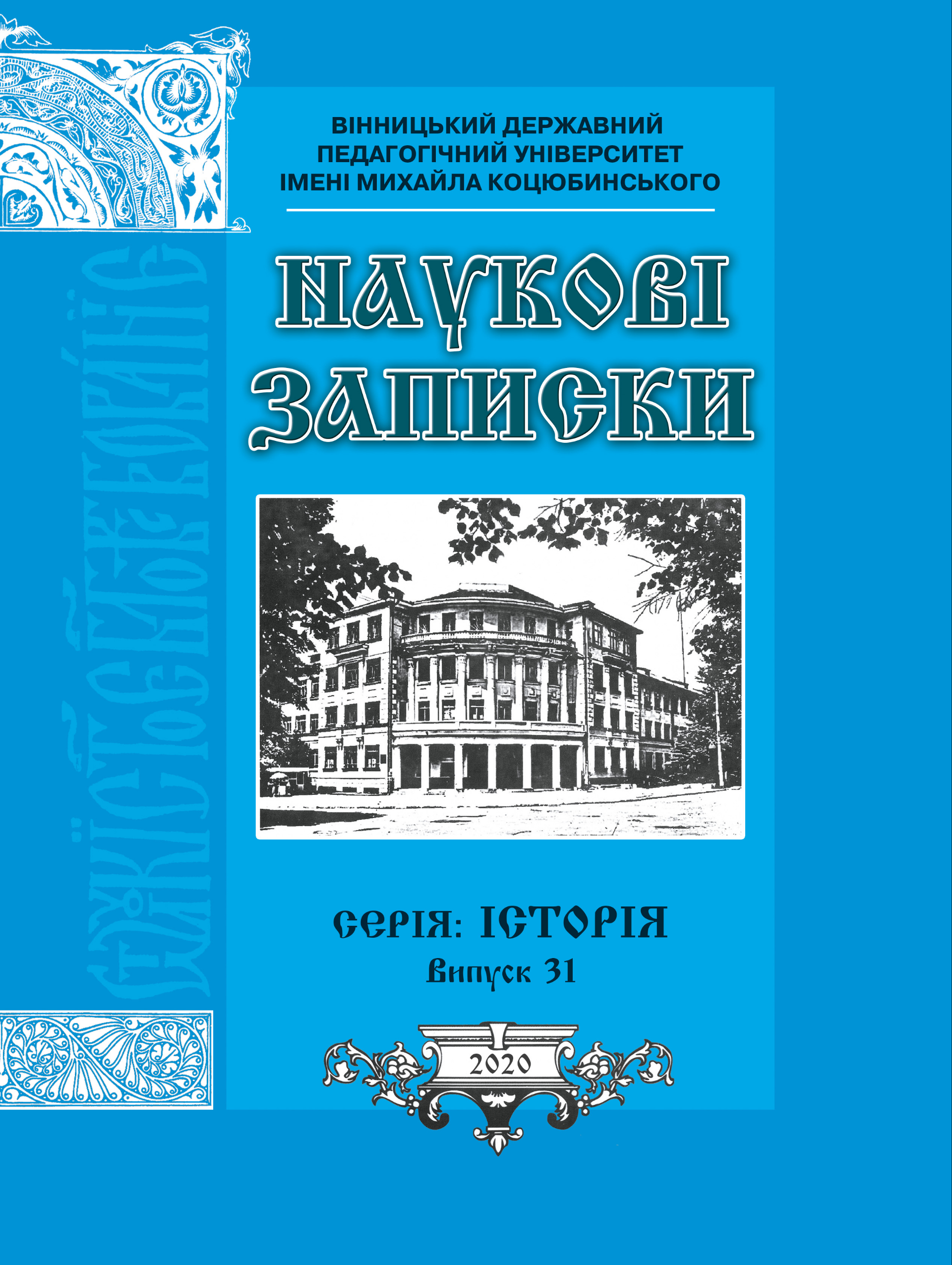Abstract
The purpose of the article. In the process of modernization during the second half of the 19th century, landed gentry of the Russian Empire gradually adapted to new socioeconomic conditions and became more socially active, but they didn't get even minimal political regulators to meet their social, economic and cultural needs until 1906 elections to the State Duma. Like all other social groups of the empire, landed gentry have no could neither formulate their political demands nor create political organizations that would uphold their interests. At the same time, until the revolutionary events of 1917, the nobility was still considered the pillar of the autocracy, so it is important to determine whether it was absolutely committed to the empire, or was there Fronde-like sentiment among its representatives. Within the scope of this article Fronde-like sentiment of a particular social group refers to negativism caused by actions of the authorities, which is exhibited rather as a cultural resistance and does not lead to confrontation with the powers that be. The landed gentry is considered herein regardless of ethnicity of its representatives. Methodology of the study includes using of books as material sources as well as historical and bibliognostical methods. Scientific novelty. Book-related practices of the landed gentry (acquisition, distribution, use, and storage of books) have been analyzed in order to study the passive resistance to power, which traditionally isn't easily accessible. Conclusions. It has been ascertained that there was Fronde-like sentiment among landlords and noblemen of Right-Bank Ukraine during the second half of the 19th century. The police nature of the country's state apparatus concussed even loyal subjects to resort to unlawful actions in order to satisfy their cultural needs. Their deliberate practices related to forbidden books corroborate the existence of quiet opposition to the authorities, which ultimately opposed an individual to the state system and compromised the traditional value system.
References
Darnton, R. (2010). Poetry and the Police: Communication Networks in Eighteenth-Century Paris. Cambridge, MA: Harvard University Press. 224 p.
Epsztein, T. (2005). Z piorem i paletą: zainteresowania intelektualne i artystyczne ziemiaństwa polskiego na Ukrainie w drugiej połowie XIX w. Warszawa: Neriton. 589 s.
Kutyłowska, H. (2003). Wspomnienia z Podola (1898 – 1919). Warszawa: Czytelnik. 124 s.
Айзеншток, И. (1939) Французские писатели в оценках царской цензуры. Литературное наследство, (33–34), 769–861.
Барвінок, О. (2014). Дворяни Подільської губернії в органах державного управління та станового самоврядування регіону (1793 – 1917 рр.) (автореф. дис. ... канд. іст. наук : 07.00.01). Миколаїв. 19 с.
Баринова, Е. (2006). Российское дворянство в начале ХХ века: социокультурный портрет. Самара. 379 с.
Брискман, М. А. (1935). Ф. И. Тютчев в Комитете цензуры иностранной. Литературное наследство, (19/21), 565–578.
Кароєва, Т. (2019). Регіональні родові бібліотеки початку ХХ ст.: до методики встановлення факту існування (на прикладі Подільської губернії). Рукописна та книжкова спадщина України, (23), 139–153. https://doi.org/10.15407/rksu.23.139.
Кривошея, І. (1997). Еволюція дворянства Правобережної України наприкінці XVIII – початку ХХ ст. (на матеріалах Київської губернії) (автореф. дис. … канд. іст. наук: 07.00.01). Київ. 19 с.
Курков, К. (2006). Российское дворянство в контексте модернизации в начале XX в. : экономический и социокультурный аспекты (автореф. дис… д-ра ист. наук: 07.00.02). Москва. 50 с.
Левицкий, О. (1906). Из жизни учебных заведений Юго-Западного края в 1840-х годах. Киевская старина, (ХСІІІ), 70–78. Патрушева, Н. Г. (сост.) (2013). Цензоры Российской империи, конец XVIII – начало XX века: биобиблиогр. справ. Санкт-Петербург. 480 с.
ПСЗ – Полное собрание законов Российской империи (1825 – 1881). Собр. 2. Санкт-Петербург.
Соломонова, Т. Р. (2010). Книга як знаряддя збереження етнічної ідентичності поляками Поділля другої половини ХІХ – початку ХХ ст. Наукові записки Вінницького державного педагогічного університету імені Михайла Коцюбинського. Серія: Історія, (18), 328–331. https://doi.org/10.31652/2411-2143-2010-18-328-331
Темірова, Н. Р. (2003). Поміщики України в 1861–1917 рр.: соціально–економічна еволюція. Донецьк. 320 с.
Филатова, Т. В. (2000). Российское поместное дворянство в начале XX в.: организация, деятельность, попытки самоидентификации (автореф. дис… канд. ист. наук: 07.00.02). Москва. 26 с. Шартье, Р. (2001). Культурные истоки Французской революции. Москва: Искусство. 256 с.
Шахрай, Т. О. (2009) Господарська, громадсько-політична та культурна діяльність дворян і поміщиків Волині наприкінці XIX – початку XX ст. (автореф. дис. ... канд. іст. наук: 07.00.01). Черкаси. 20 с.
Эйдельман, Н. Я. (1984). Герцен против самодержавия. Секретная политическая история России XVIII и XIX веков и Вольная печать. Москва. 317 с. http://vivovoco.astronet.ru/VV/PAPERS/NYE/DOLGO.HTM
Юдин, Е. Е. (2000). Русское дворянство накануне и в период первой мировой войны: Проблемы социального развития и политической деятельности (автореф. дис… канд. ист. наук: 07.00.02). Москва. 16 с.

This work is licensed under a Creative Commons Attribution 4.0 International License.
Copyright (c) 2020 Scientific Papers of the Vinnytsia Mykhailo Kotsiubynskyi State Pedagogical University. Series: History





